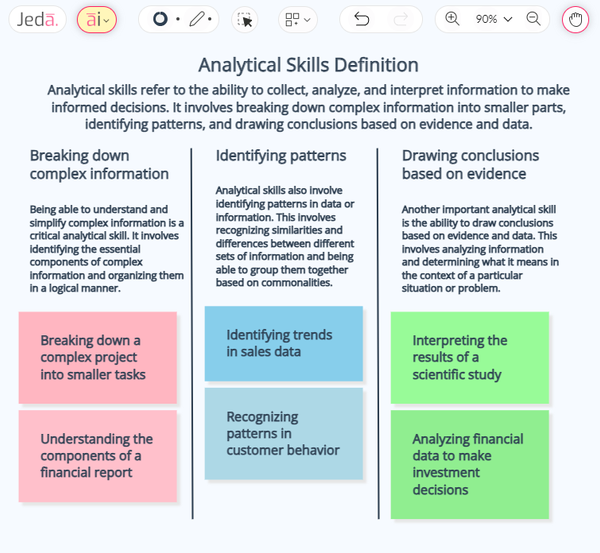Analytical skills refer to the ability to collect, interpret, and evaluate information to understand complex problems and make informed decisions. These skills involve breaking down problems into smaller components, identifying patterns and trends, and drawing logical conclusions based on available data. Analytical skills are essential across various fields and professions, including business, science, engineering, healthcare, and more.

Here are some key components of analytical skills:
Critical Thinking: Critical thinking involves objectively evaluating information, arguments, and evidence to form reasoned judgments and make sound decisions. It requires questioning assumptions, considering alternative perspectives, and applying logical reasoning to analyze complex issues.
Problem-Solving: Problem-solving entails identifying challenges, analyzing the root causes of problems, and developing effective strategies to address them. It involves a systematic approach to defining problems, generating solutions, and implementing action plans to achieve desired outcomes.
Data Analysis: Data analysis involves collecting, organizing, and interpreting data to extract meaningful insights and inform decision-making. It includes using statistical techniques, data visualization tools, and analytical software to identify patterns, trends, correlations, and outliers within datasets.
Research Skills: Research skills involve gathering information from various sources, such as books, articles, databases, and online resources, to gain a comprehensive understanding of a topic or issue. It includes evaluating the credibility and relevance of sources and synthesizing information to form well-informed conclusions.
Attention to Detail: Attention to detail involves carefully examining information and detecting discrepancies, errors, or inconsistencies. It includes ensuring accuracy and precision in data analysis, documentation, and problem-solving processes.
Decision-Making: Decision-making involves evaluating available options, assessing risks and benefits, and choosing the most appropriate course of action to achieve desired outcomes. It requires weighing alternative solutions, considering potential consequences, and making timely and effective decisions.
Logical Reasoning: Logical reasoning involves using rational and coherent thinking processes to analyze information, draw conclusions, and solve problems. It includes identifying logical connections, evaluating arguments, and deducing implications based on evidence and principles of logic.
Overall, analytical skills are essential for individuals to effectively navigate complex challenges, make informed decisions, and drive positive outcomes in various personal, academic, and professional contexts.


No comments yet, come on and post~